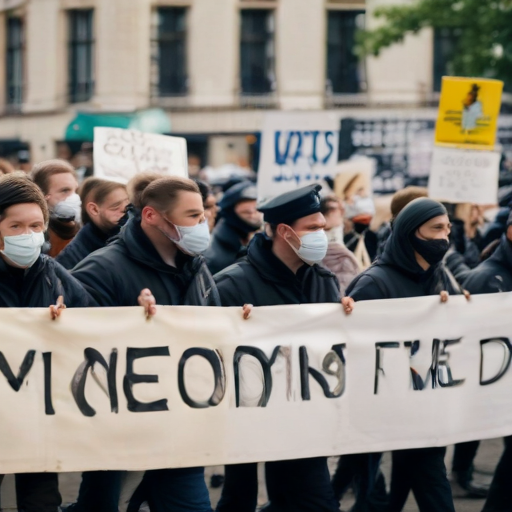South Korea’s President Yoon Suk Yeol made headlines recently by declaring martial law for the first time in nearly 50 years, a move announced during a late-night television broadcast. He cited the presence of “anti-state forces” and increasing threats from North Korea as justifications for his drastic action. However, it soon became apparent that the decision stemmed more from internal political struggles than external threats.
In response to the martial law declaration, thousands of citizens gathered outside parliament to protest the government’s actions. Opposition lawmakers quickly moved to convene an emergency session with the aim of overturning the martial law, which they labeled as unconstitutional. In the hours that followed, lawmakers were able to navigate through barricades and managed to vote out the decree, leading Yoon to accept the parliament’s decision and lift the martial law shortly thereafter. The controversy surrounding his actions has led to discussions of possible impeachment proceedings against him, as the opposition condemned his behavior as insurrectionary.
Yoon’s declaration temporarily placed military authorities in charge, leading to the deployment of troops and police around the National Assembly. The military issued orders that included a ban on protests and media activities. Despite the military’s heavy presence, public protests persisted into the night, with demonstrators voicing their opposition and successfully continuing to have media coverage of the protests.
The martial law was last declared in South Korea in 1979, during a politically tumultuous period. Yoon’s invocation of such a serious measure has raised alarms, with historical parallels drawn to previous dictatorships in the country. Observers note that Yoon’s comparison of opposition members to North Korean sympathizers lacks credible support, further fueling tensions.
Yoon’s recent political woes stem from a series of setbacks since he took office in May 2022 as a hardline conservative. Having lost considerable political ground due to the opposition’s recent gains and ongoing scandals, his approval ratings have plummeted, hovering around just 17%. These circumstances reflect the challenges he faces in governing effectively, especially as the opposition seeks to pass significant reforms that directly threaten his administration.
The swift response of the South Korean people and their lawmakers to Yoon’s declaration signals a resilient democratic spirit within the nation. The situation, while tumultuous, showcases the civic engagement of the populace and their resolve to sustain democratic principles.
Moving forward, the focus will likely shift to how parliament will address the proposed impeachment and what strategies Yoon’s administration will pursue to regain public trust. The outcome could either deepen political divisions or foster a renewed commitment to democratic governance in South Korea.
